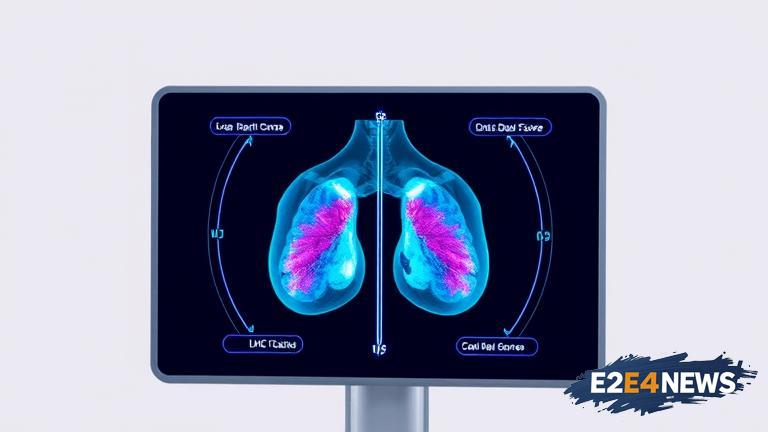In a groundbreaking move, Egypt has introduced the Middle East and North Africa (MENA) region’s first artificial intelligence (AI)-powered breast cancer detection system. This innovative technology is set to transform the healthcare landscape in Egypt and beyond. The new system utilizes advanced AI algorithms to analyze medical images, such as mammograms and ultrasounds, to detect breast cancer at an early stage. This early detection is crucial in increasing the chances of successful treatment and saving lives. The AI system has been trained on a vast dataset of medical images, enabling it to learn patterns and identify abnormalities that may be missed by human radiologists. The technology has shown impressive accuracy in detecting breast cancer, with a high degree of sensitivity and specificity. The launch of this system is a significant milestone in Egypt’s efforts to improve healthcare outcomes and reduce the burden of breast cancer on the country’s healthcare system. Breast cancer is one of the most common types of cancer affecting women in Egypt, with a high incidence rate and limited access to quality healthcare services. The new AI-powered detection system is expected to bridge this gap by providing accurate and timely diagnoses, enabling women to receive prompt treatment and care. The system has been developed in collaboration with international experts and is based on cutting-edge technology. The Egyptian government has expressed its commitment to supporting the development and deployment of innovative healthcare technologies, including AI-powered solutions. The launch of the AI breast cancer detection system is a testament to this commitment and demonstrates the country’s determination to improve healthcare outcomes for its citizens. The system is expected to be rolled out across Egypt, with a focus on rural and underserved areas where access to quality healthcare services is limited. This will help to reduce health disparities and ensure that all women, regardless of their geographical location or socioeconomic status, have access to quality breast cancer screening and diagnosis. The AI-powered detection system is also expected to support research and development in the field of breast cancer, enabling scientists to better understand the disease and develop more effective treatments. Furthermore, the system will provide valuable insights into the epidemiology of breast cancer in Egypt, helping policymakers to develop targeted interventions and strategies to reduce the burden of the disease. The launch of the AI breast cancer detection system has been welcomed by healthcare professionals, patients, and advocacy groups, who see it as a major breakthrough in the fight against breast cancer. The system has the potential to save countless lives and improve the quality of life for women affected by breast cancer. As Egypt continues to invest in innovative healthcare technologies, it is likely that the country will become a hub for medical innovation and research in the region. The AI-powered breast cancer detection system is just the beginning, and it is expected that other AI-driven healthcare solutions will be developed and deployed in the coming years. These solutions will help to address some of the most pressing healthcare challenges facing Egypt and the wider MENA region, including the rising burden of non-communicable diseases and the shortage of skilled healthcare professionals. In conclusion, the launch of the AI-powered breast cancer detection system in Egypt is a significant achievement that has the potential to transform the healthcare landscape in the country and beyond. It demonstrates the power of innovation and technology in improving healthcare outcomes and saving lives.
